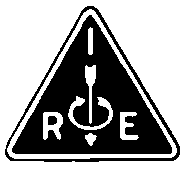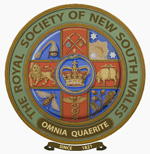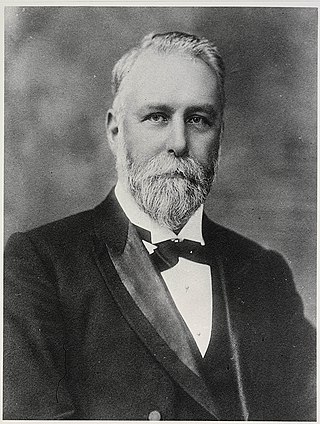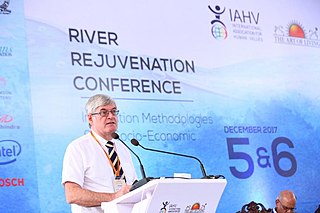Related Research Articles

Charles Proteus Steinmetz was an American mathematician and electrical engineer and professor at Union College. He fostered the development of alternating current that made possible the expansion of the electric power industry in the United States, formulating mathematical theories for engineers. He made ground-breaking discoveries in the understanding of hysteresis that enabled engineers to design better electromagnetic apparatus equipment, especially electric motors for use in industry.

The Institution of Electrical Engineers (IEE) was a British professional organisation of electronics, electrical, manufacturing, and information technology professionals, especially electrical engineers. It began in 1871 as the Society of Telegraph Engineers. In 2006, it merged with the Institution of Incorporated Engineers and the new organisation is Institution of Engineering and Technology (IET).

The Institution of Civil Engineers (ICE) is an independent professional association for civil engineers and a charitable body in the United Kingdom. Based in London, ICE has over 92,000 members, of whom three-quarters are located in the UK, while the rest are located in more than 150 other countries. The ICE aims to support the civil engineering profession by offering professional qualification, promoting education, maintaining professional ethics, and liaising with industry, academia and government. Under its commercial arm, it delivers training, recruitment, publishing and contract services. As a professional body, ICE aims to support and promote professional learning, managing professional ethics and safeguarding the status of engineers, and representing the interests of the profession in dealings with government, etc. It sets standards for membership of the body; works with industry and academia to progress engineering standards and advises on education and training curricula.

The Institute of Radio Engineers (IRE) was a professional organization which existed from 1912 until December 31, 1962. On January 1, 1963, it merged with the American Institute of Electrical Engineers (AIEE) to form the Institute of Electrical and Electronics Engineers (IEEE).

The British Computer Society (BCS), branded BCS, The Chartered Institute for IT, since 2009, is a professional body and a learned society that represents those working in information technology (IT), computing, software engineering and computer science, both in the United Kingdom and internationally. Founded in 1957, BCS has played an important role in educating and nurturing IT professionals, computer scientists, software engineers, computer engineers, upholding the profession, accrediting chartered IT professional status, and creating a global community active in promoting and furthering the field and practice of computing.

The Royal Society of New South Wales is a learned society based in Sydney, Australia. The Governor of New South Wales is the vice-regal patron of the Society. It is the oldest learned society in the Southern Hemisphere.
Thomas Kailath is an Indian born American electrical engineer, information theorist, control engineer, entrepreneur and the Hitachi America Professor of Engineering emeritus at Stanford University. Professor Kailath has authored several books, including the well-known book Linear Systems, which ranks as one of the most referenced books in the field of linear systems.

The Australian Institute of Architects, officially the Royal Australian Institute of Architects, is Australia's professional body for architects. Its members use the post-nominals FRAIA (Fellow) and RAIA. The Institute supports 14,000 members across Australia, including 550 Australian members who are based in architectural roles across 40 countries outside Australia. SONA is the national student-membership body of the Australian Institute of Architects. EmAGN represents architectural professionals within 15 years of graduation, as part of the Australian Institute of Architects.

The Linnean Society of New South Wales promotes the Cultivation and Study of the Science of Natural History in all its Branches and was founded in Sydney, New South Wales (Australia) in 1874 and incorporated in 1884.

Jack Gordon Beale AO was an Australian politician who championed the need for Australia to conserve and develop its water resources. He was also Australia's first environment minister. In his obituary in The Sydney Morning Herald, he was described as "a visionary, one of the first to realize what would become vital issues in Australia: the potential of water resources and the limited capacity of the environment to sustain abuse." Known as the 'Water Man,' he was quoted as saying:
"Australia is the lowest, flattest, hottest and driest continent on the earth and we have to manage it accordingly."
Craig Asbjorn Baumann is an Australian politician. He was a member of the New South Wales Legislative Assembly from 2007 to 2015, representing the electorate of Port Stephens. He was elected as a member of the Liberal Party, but resigned to sit as an independent in 2014 following his admission of failing to properly disclose electoral donations in the course of Independent Commission Against Corruption proceedings.
Proceedings of the South Wales Institute of Engineers is the annual journal of the South Wales Institute of Engineers. It contains scholarly and popular articles on engineering, scientific and economic topics. It was initially published as Transactions of the South Wales Institute of Engineers (Vol. 1, 1859 to Vol. 62, then renamed Proceedings of the South Wales Institute of Engineers, Vol. 63 - Vol. 99. In 1992 it was renamed Engineering South Wales.
Bruce John McDonald, AM is a former politician from Australia, having held senior positions with the Liberal Party of Australia at the New South Wales, South Australian and Federal levels.
Edward Pritchard Martin was a British engineer, and steel maker.
The Australasian Institute of Mining and Metallurgy (AusIMM) provides services to professionals engaged in all facets of the global minerals sector and is based in Carlton, Victoria, Australia.
Edmund Mills Hann (1850–1931) was a Welsh prominent figure in the industrial life of South Wales, and a leading coal owner during the industrial struggles of the 1920s.

Louis Francis Heydon was a politician and solicitor in New South Wales, Australia and was Minister of Justice for six weeks 1885 to 1886.

Alfred Weeks Szlumper CBE, was a British railway engineer. He was the President of the Permanent Way Institution and the Chief Engineer of the London and South Western Railway and later the Southern Railway company.
The Norman W. V. Hayes Medal was awarded by the Institution of Radio and Electronics Engineers (IREE), Australia, awarded annually for the most meritorious paper published in the Proceedings of the Institution of Radio and Electronics Engineers Australia during the preceding year. Adjudication alternated between the Institution of Electrical and Electronic Engineers and the Institution of Electrical Engineers (London). It was named in honour of Norman William Victor Hayes (1891-1950) who was originally communications engineer at the Postmaster-General's Department, Australia, and then later president of the Institution of Radio and Electronics Engineers until his death. The inaugural medal was in 1951.

Roger Alexander Falconer FREng, ForMemCAE, FLSW, FEurASc, is Emeritus Professor of Water and Environmental Engineering at Cardiff University, Independent Water Engineering and Environmental Management Consultant, Tidal Energy Consultant, and Chair Professor at Hohai University and the Yangtze Institute for Conservation and Development, China.
References
- ↑ The South Wales Institute of Engineers Proceedings Volume XXIX, 1913 pxxxiv (copy consulted at North of England Institute of Mining and Mechanical Engineers 26 November 2013)